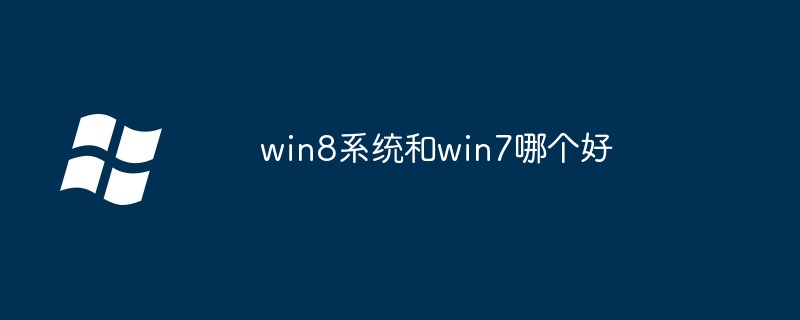
Windows8 has faster startup and shutdown speeds, better multi-tasking capabilities, and a new Metro interface, which is suitable for users who value speed, security and new interface experience. But it may not be suitable for users accustomed to traditional desktops and has lower application compatibility. On the other hand, Windows 7 provides a more traditional interface with stronger compatibility and higher stability, but it has slower startup speed and is not as optimized for multitasking as Windows 8.

Both Windows 8 and Windows 7 have their own advantages and disadvantages, and which one is better depends on the user's needs and preferences. The following is their comparative analysis:
Windows 8:
Advantages:
Disadvantages:
The above is the detailed content of Which system is better, win8 or win7?. For more information, please follow other related articles on the PHP Chinese website!
 Introduction to screenshot shortcut keys in Windows 7 system
Introduction to screenshot shortcut keys in Windows 7 system
 Solution to the problem that win7 system cannot start
Solution to the problem that win7 system cannot start
 How to repair win7 system if it is damaged and cannot be booted
How to repair win7 system if it is damaged and cannot be booted
 Solution to no sound in win7 system
Solution to no sound in win7 system
 Detailed process of upgrading win7 system to win10 system
Detailed process of upgrading win7 system to win10 system
 The specific process of connecting to wifi in win7 system
The specific process of connecting to wifi in win7 system
 rgb to hexadecimal conversion
rgb to hexadecimal conversion
 Clean up junk in win10
Clean up junk in win10
 How to express spaces in regular expressions
How to express spaces in regular expressions




